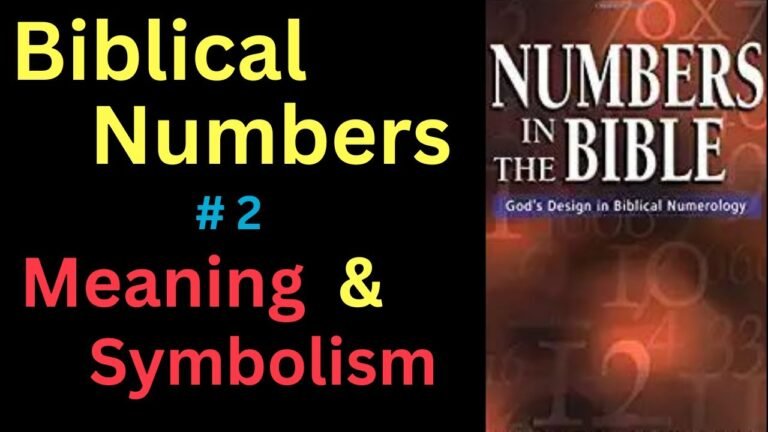Understanding the Protestant Ten Commandments
The Protestant Ten Commandments serve as a foundational guide for moral conduct and ethical living, distinct from their Catholic counterparts. Rooted in biblical scripture, these commandments emphasize the importance of personal faith and individual responsibility in a believer’s life. As modern society grapples with complex moral dilemmas, revisiting these ancient principles offers valuable insights into contemporary issues, encouraging reflection on our values and actions. This exploration invites readers to consider how these timeless commandments can shape our understanding of right and wrong in today’s world.
What are the Protestant Ten Commandments?
The Protestant Ten Commandments are a set of biblical principles for ethical conduct, derived from Exodus 20:1-17, emphasizing love for God and neighbor.
Are the Ten Commandments interpreted differently by Catholics and Protestants?
The Ten Commandments serve as a foundational moral guide in both Catholic and Protestant traditions, yet their interpretations and divisions exhibit notable differences. In the Catholic tradition, the commandments are often grouped in a way that combines the first two, emphasizing the unity of God and the prohibition of idolatry. This approach highlights a distinctive theological perspective that underlines the importance of worshiping God exclusively.
In contrast, many Protestant communities, particularly those influenced by Reformed theology, maintain a more segmented view of the commandments. Here, the first two are treated as separate, allowing for a more detailed exploration of the nature of God and the implications of idolatry. This division reflects a broader emphasis on individual interpretation of Scripture, which is a hallmark of Protestantism.
Despite these variations, both Catholics and Protestants agree on the moral imperatives contained within the commandments. Ultimately, the differences in numbering and grouping do not diminish their shared commitment to the ethical teachings that guide their faith communities, fostering a deeper understanding of moral living in a complex world.
Are there two different versions of the Ten Commandments?
The Ten Commandments, a cornerstone of Judeo-Christian ethics, are found in multiple places within the Bible, presenting a rich tapestry of moral guidance. The two most recognized versions appear in Exodus 20 and Deuteronomy 5, each offering slightly different perspectives that reflect the contexts in which they were delivered. These texts have shaped religious thought and legal frameworks for centuries, emphasizing values such as honesty, respect, and the sanctity of life.
In addition to these well-known accounts, a third version exists within the broader narrative of the Pentateuch, showcasing the adaptability of these commandments to various circumstances faced by the Israelites. This third rendition may not be as prominent but nevertheless contributes to a deeper understanding of the commandments’ significance and their application in different eras. Scholars and theologians often examine these nuances to uncover the evolving nature of the moral code.
The existence of multiple versions of the Ten Commandments invites rich dialogue about interpretation and application in contemporary society. Each version serves as a reminder of the enduring principles that guide human behavior, while also highlighting the importance of context in moral teachings. As we engage with these texts, we are encouraged to reflect on their relevance today and how they can inspire us to live with integrity and purpose.
Why did the Catholic Church change the Ten Commandments?
The Ten Commandments have remained a steadfast moral foundation for Catholics, who regard them as divinely inspired scripture. While some may perceive a change, it is important to clarify that the Catholic Church has not altered the commandments themselves. Instead, the interpretation and numbering can differ between denominations, creating some confusion regarding their presentation.
Protestant traditions often divide the first commandment into two distinct commandments, emphasizing the prohibition of idolatry and the worship of other gods. This approach highlights different theological emphases but does not alter the essence of the commandments. The core moral teachings remain consistent across both Catholic and Protestant beliefs, as they aim to guide followers in living a virtuous life.
Ultimately, the Ten Commandments serve as a unifying ethical framework within Christianity, regardless of the numbering differences. Catholics hold firmly to the integrity of the commandments as part of their faith, reinforcing their commitment to the values of love, respect, and devotion that these precepts embody.
A Modern Guide to Timeless Principles
In a world that constantly evolves, the core principles of success remain steadfast, guiding individuals through the complexities of modern life. Embracing adaptability, resilience, and a commitment to lifelong learning can empower anyone to navigate challenges with confidence. By grounding oneself in these timeless values, individuals can cultivate a mindset that not only responds to change but thrives in it, unlocking new opportunities along the way.
Moreover, effective communication and collaboration are essential in today’s interconnected society. Building strong relationships, both personally and professionally, hinges on the ability to listen actively and engage with empathy. By fostering an environment of trust and openness, individuals can harness the collective strengths of diverse perspectives, driving innovation and achieving shared goals. This synergy of timeless principles with modern practices creates a powerful framework for enduring success.
Navigating Faith Through Biblical Law
In a world where moral frameworks often seem ambiguous, biblical law provides a clear pathway for navigating the complexities of faith. Rooted in ancient scripture, these laws offer timeless wisdom that guides believers in their daily lives. By embracing these teachings, individuals can cultivate a deeper understanding of their spiritual journey, fostering a sense of purpose and direction amidst the chaos of modern existence.
Biblical law is not merely a set of rules; it embodies principles of justice, mercy, and love. These foundational tenets invite believers to reflect on their actions and decisions, encouraging them to strive for a life that mirrors divine values. As one engages with these teachings, the transformative power of faith becomes apparent, inspiring a commitment to ethical living that transcends cultural and societal norms.
Ultimately, navigating faith through biblical law empowers individuals to build a community grounded in shared values and mutual respect. This collective adherence to spiritual principles fosters connections that are both meaningful and supportive, creating an environment where faith can flourish. By honoring the wisdom of biblical law, believers can not only deepen their own faith but also contribute to a more compassionate and just world.
The Relevance of Ancient Rules Today
In our fast-paced modern world, the wisdom of ancient rules continues to resonate, offering timeless guidance for navigating contemporary challenges. Principles established centuries ago, such as justice, respect, and community, remain vital in fostering harmonious relationships and cohesive societies. These foundational values serve as a compass, reminding us of our shared humanity and the responsibilities we hold towards one another.
Moreover, ancient philosophies often emphasize the significance of balance and moderation, concepts that are particularly relevant in today’s society, where extremes can dominate discourse and decision-making. By revisiting these age-old teachings, individuals can cultivate a more thoughtful approach to life, encouraging mindfulness in personal choices and interactions. This perspective can lead to healthier lifestyles and more sustainable practices, ultimately benefiting both individuals and the planet.
As we face complex global issues, the relevance of ancient rules becomes even clearer. They not only provide a framework for ethical decision-making but also encourage us to reflect on our actions and their impact on future generations. By integrating these enduring principles into our daily lives, we can create a more just and compassionate world, bridging the gap between past wisdom and present realities.
Exploring Spiritual Guidance for Life
In the journey of life, many seek a deeper understanding of themselves and their purpose. Spiritual guidance serves as a beacon, helping individuals navigate the complexities of existence. By tapping into various traditions and philosophies, people can uncover insights that resonate with their unique experiences. This exploration often leads to heightened self-awareness and a stronger connection to the world around them, fostering personal growth.
Embracing spiritual practices, such as meditation, mindfulness, or prayer, can significantly enhance one’s emotional well-being. These practices promote inner peace and clarity, allowing individuals to detach from the chaos of daily life and reflect on their true desires. As individuals cultivate a sense of tranquility, they become more attuned to their intuition, enabling them to make decisions that align with their authentic selves.
Ultimately, the pursuit of spiritual guidance is not just about finding answers; it’s about embracing the journey itself. By engaging with diverse perspectives and learning from various spiritual teachings, one can forge a path that honors both individuality and interconnectedness. This holistic approach to life encourages a sense of community and compassion, enriching the human experience and inspiring others to embark on their own spiritual quests.
Aligning Beliefs with Everyday Actions
In a world where the gap between what we believe and how we act often feels insurmountable, aligning our beliefs with our everyday actions can lead to profound personal transformation. By consciously integrating our core values into daily decisions—be it through sustainable choices, ethical consumption, or acts of kindness—we not only reinforce our beliefs but also inspire those around us. This alignment cultivates authenticity, fostering a sense of fulfillment and purpose that can ripple through our communities. Embracing this practice encourages us to live intentionally and empowers us to create a more harmonious existence, both for ourselves and for the world we inhabit.
Embracing the principles of the Protestant Ten Commandments offers a profound framework for personal integrity and community harmony. These commandments, rooted in scripture and tradition, encourage individuals to live with purpose, respect, and accountability. By adhering to these timeless values, we not only strengthen our own moral compass but also foster a society that thrives on mutual understanding and compassion. The enduring relevance of these guidelines challenges us to reflect on our actions and inspires a collective commitment to a more ethical and just world.







